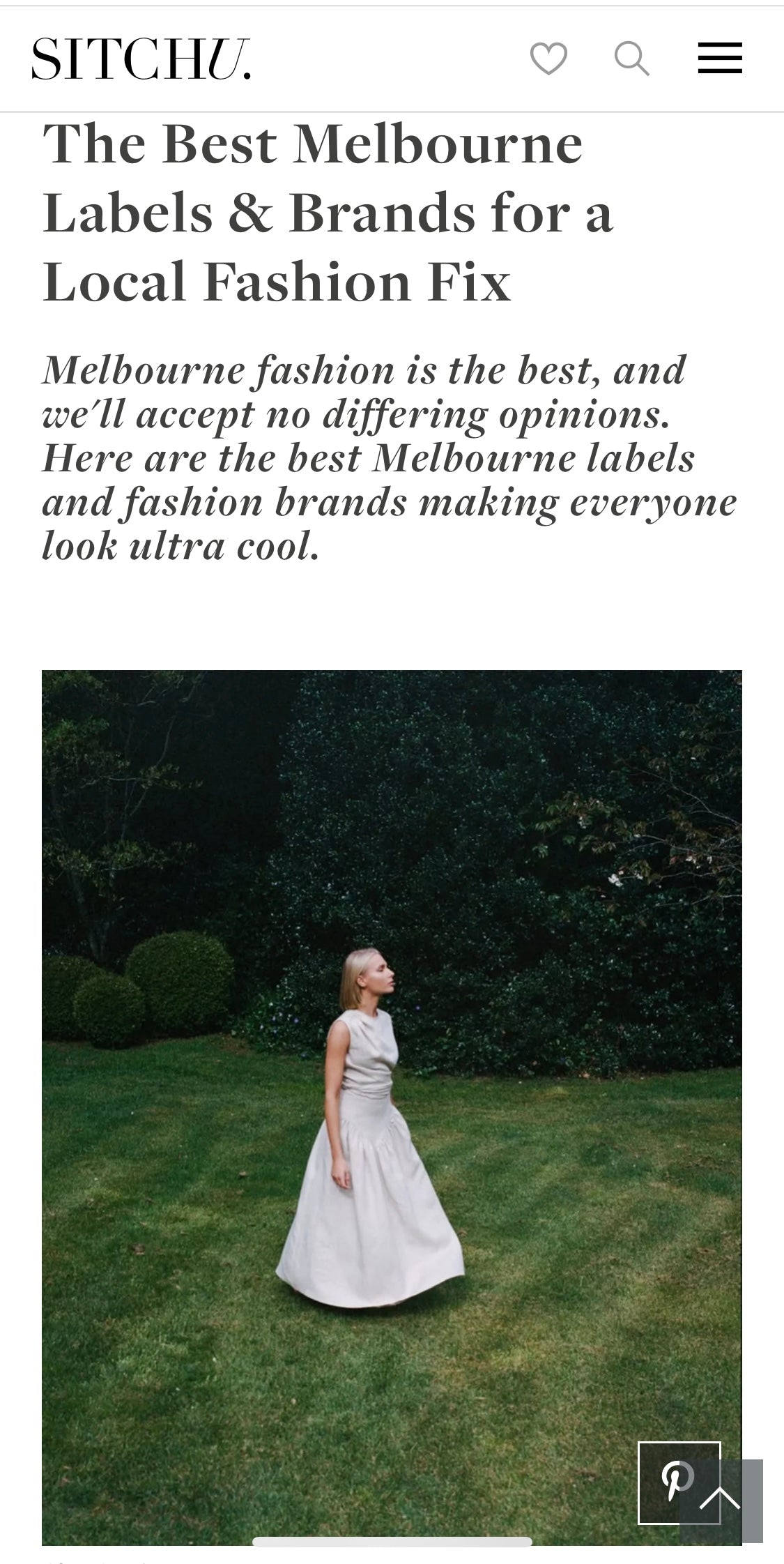Article: Is “Made in Australia” Still a Motivation for Purchase?

Is “Made in Australia” Still a Motivation for Purchase?
In a world where cost of living pressures are mounting and consumers demand greater transparency in supply chains, is the “Made in Australia” label still a strong selling point, or are buyers prioritising other factors? At SHÉ, we create our garments in Melbourne, believing in the value of local craftsmanship, ethical production, and a sustainable future. But as consumer priorities shift, we ask: does being Australian made still influence purchasing decisions, or do affordability and transparency now take precedence?
The Traditional Appeal of “Made in Australia”
For years, Australian made fashion has carried a sense of prestige. Supporting local production means keeping jobs in Australia, ensuring fair wages, and often resulting in a higher quality product. There’s also the sustainability aspect local production typically involves lower carbon emissions than overseas manufacturing.
However, the landscape is changing. While “Made in Australia” still holds meaning for many, it competes with more immediate consumer concerns, like affordability and traceability.
The Rising Cost of Living vs. Ethical Buying
With inflation and cost-of-living pressures rising, price has become a major factor in purchasing decisions. Many consumers are feeling the squeeze and looking for ways to cut costs, including in their fashion choices. Fast fashion has capitalised on this shift, offering lower prices at the expense of ethical and environmental considerations.
Yet, at the same time, there is a growing movement toward conscious consumerism. Customers want to know where and how their clothes are made. Brands that offer transparency whether Australian made or not are earning trust by providing insight into their supply chains, ensuring ethical production, and using sustainable materials.
Does “Made in Australia” Still Matter?
The answer is yes, but with conditions. Australian made fashion remains a strong motivation for purchase, but it needs to be backed by more than just a label. Consumers want:
Brand Value and Quality
Justifying the cost with quality, longevity, and ethical production.
Transparency
Clearly communicating where materials are sourced, who makes the garments, and under what conditions.
Sustainability
A commitment to ethical production, low waste, and responsible sourcing.
At SHÉ, we continue to produce in Melbourne because we believe in the integrity of Australian-made fashion. But we also understand that being locally made is only one piece of the puzzle. That’s why we prioritise transparency, ethical production, and value for our customers so they know they’re not just buying a product but supporting a movement.
Final Thought: A Shift, Not a Decline
Australian made fashion still holds power, but consumers are increasingly looking beyond just the label. They want assurance that their purchase aligns with their values-whether that’s brand value, sustainability, or ethical production. The brands that thrive in this new landscape will be the ones that offer a balance of all three.
Would love to hear your thoughts do you still prioritise Australian made when shopping for fashion, or do other factors influence your decisions more? Let us know in the comments!
Explore our collection at SHÉ and be part of the movement toward thoughtful fashion.


Leave a comment
This site is protected by hCaptcha and the hCaptcha Privacy Policy and Terms of Service apply.